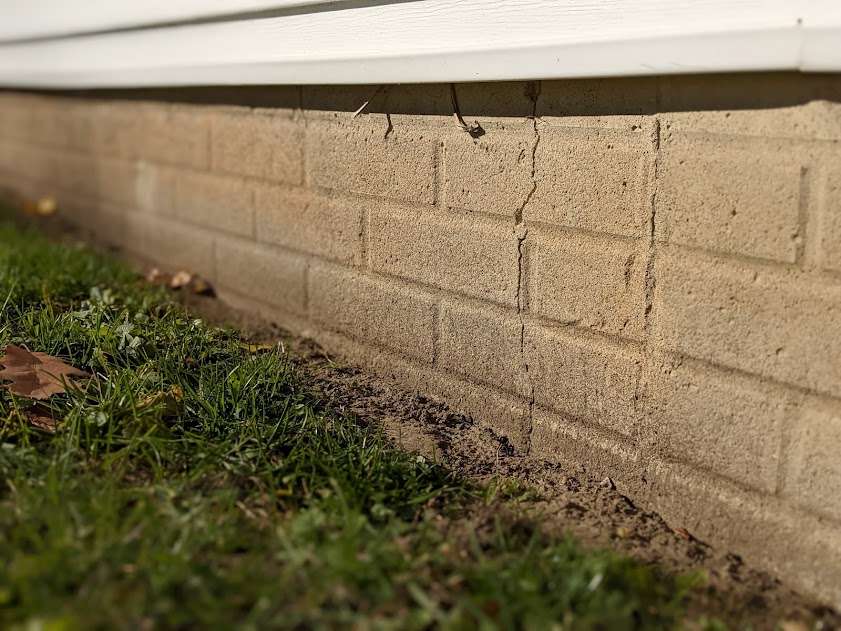Probate with a will is the legal process of proving the validity of a deceased person’s will and distributing their assets according to their wishes. In this process, the court oversees the administration of the estate and ensures that debts and taxes are paid before the distribution of assets to beneficiaries.
It is important to understand the steps involved in probating a will to ensure a smooth and efficient process. By familiarizing yourself with the requirements and responsibilities, you can navigate through probate with a will confidently. We will discuss the key aspects of probate with a will and provide guidance on how to proceed with the process.

Credit: www.nationalcremation.com
Why Having A Will Is Important
Creating a will is crucial to ensure a smooth probate process. By having a will, you can specify how your assets should be distributed after your passing, giving you peace of mind and avoiding legal complications for your loved ones.
Importance Of Creating A Will
- A will is a legal document that outlines your wishes for the distribution of your assets after your passing. It provides clarity and ensures that your intentions are followed.
- By creating a will, you can appoint an executor, the person responsible for carrying out your wishes. This helps avoid conflicts and confusion among your loved ones.
- Having a will allows you to make specific bequests, such as leaving sentimental items or charitable donations, ensuring your legacy continues even after you’re gone.
- If you have minor children, a will allows you to designate a guardian for them. This helps protect their future and ensures they are cared for according to your wishes.
- Without a will, the distribution of your assets will be left to intestate succession laws, which may not align with your preferences. Creating a will gives you control over what happens to your belongings.
Benefits Of Having A Will
- Peace of mind: Knowing that you have a will in place can provide peace of mind, knowing that your wishes will be respected and your loved ones will be taken care of.
- Minimizes conflict: A will can help prevent potential disputes and conflicts among family members by clearly stating your intentions and providing a legal document to reference.
- Efficient distribution: Having a will streamlines the probate process, making it easier for your assets to be distributed according to your instructions, thus saving time and effort for your loved ones.
- Protection for loved ones: A will allows you to provide for your spouse, children, and other dependents, ensuring their financial security during a difficult time.
- Flexibility to adapt: With a will, you have the ability to update and revise your estate plan as your circumstances change, ensuring that it remains up to date and reflects your current wishes.
How A Will Helps In Probate Process
- Simplified asset distribution: A will provide clear instructions on how your assets should be distributed among your beneficiaries, making the probate process more efficient and reducing delays.
- Executor’s guidance: The executor named in your will has a legal obligation to carry out your wishes. Their role is to navigate the probate process and ensure that your assets are distributed according to your instructions.
- Minimizes disputes: Having a will in place helps minimize the potential for disputes among beneficiaries, as it clearly outlines your intentions and provides legal documentation to support the distribution of your assets.
- Probate court involvement: While having a will does not entirely eliminate the need for probate, it can simplify the process and reduce the court’s involvement, potentially saving time and money.
- Protects vulnerable beneficiaries: A will can include provisions to protect vulnerable beneficiaries, such as minors or individuals with special needs, ensuring that their inheritance is managed appropriately.
Creating a will is crucial as it provides clarity, peace of mind, and control over the distribution of your assets. It simplifies the probate process, reduces conflicts among loved ones, and ensures the well-being of your beneficiaries. By taking the time to create a will, you can rest assured that your final wishes will be respected and carried out.

Role Of Executor In Probate Process
An executor plays a crucial role in the probate process when dealing with a will, ensuring that the deceased’s wishes are carried out and assets are distributed as specified. Their responsibilities include managing the estate, settling debts, and distributing bequests to beneficiaries.
Probate With A Will: Role Of Executor In Probate Process
When a loved one passes away, their estate goes through a legal process called probate. If they have a valid will, the executor plays a crucial role in ensuring that the probate process runs smoothly. In this section, we will explore the responsibilities of an executor, discuss how to choose the right executor and outline the executor’s role in probate with a will.
Responsibilities Of An Executor:
- Gathering and managing assets: The executor is responsible for locating and safeguarding the deceased person’s assets, which may include property, investments, bank accounts, and personal belongings.
- Paying debts and taxes: The executor must identify and notify creditors, settle outstanding debts, and file necessary tax returns on behalf of the deceased.
- Distributing assets: Upon settling debts and taxes, the executor distributes the remaining assets to the beneficiaries as outlined in the will, ensuring fairness and adhering to the deceased person’s wishes.
Choosing The Right Executor:
Selecting the right executor is crucial to ensuring a smooth probate process. Consider the following factors when making this decision:
- Trustworthiness and reliability: Opt for someone who is dependable, honest, and capable of handling sensitive financial matters.
- Organizational and administrative skills: The executor should possess strong organizational skills, attention to detail, and the ability to manage paperwork efficiently.
- Knowledge of the deceased’s wishes: It is advantageous for the executor to be familiar with the deceased’s wishes and desires to facilitate the distribution of assets according to the will.
Executor’s Role In Probate With A Will:
The executor’s role in probate with a will is multifaceted and involves several key responsibilities. Here’s what the executor typically does:
- Initiate the probate process: The executor begins the probate process by submitting the will to the appropriate court and initiating the necessary legal proceedings.
- Notify interested parties: It is the executor’s duty to notify beneficiaries, heirs, and any other interested parties of the probate process, ensuring transparency and providing them with the opportunity to participate if necessary.
- Represent the estate: The executor acts as the legal representative of the estate, interacting with financial institutions, government agencies, and other entities on behalf of the deceased.
- Oversee the distribution of assets: With the guidance of the will, the executor oversees the proper distribution of assets to the identified beneficiaries. This may involve liquidating assets, selling property, or transferring ownership.
- Ensure legal requirements are met: The executor ensures that all required legal steps are followed during the probate process, including filing necessary documents, paying taxes, and adhering to any specific state laws.
The executor of a will plays a vital role in the probate process, managing assets, paying debts and taxes, and distributing assets to beneficiaries. Choosing the right executor and understanding their responsibilities can help ensure a smooth and efficient probate process.
Steps To Secure And Expedite Probate Process
Streamline and safeguard the probate process by following these valuable steps if you have a will in place. Expedite the distribution of assets and protect your loved ones by carefully adhering to these guidelines.
Probate is the legal process of administering the estate of a deceased person. When the deceased has left behind a will, the probate process becomes more streamlined and efficient. Here are the crucial steps to secure and expedite the probate process when dealing with a will:
Gathering Necessary Documents
To begin the probate process smoothly, it is essential to gather all the necessary documents. This helps ensure that you have all the information required to move forward with the process. Here’s what you need:
- Death certificate: Obtain an official copy of the deceased’s death certificate. This document serves as proof of death and is usually required by the probate court.
- Original will: Locate the original will of the deceased. It is essential to have the original document on hand to file it with the probate court.
- List of assets and debts: Create an inventory of the deceased’s assets, including their bank accounts, properties, investments, and any outstanding debts or liabilities.
- Identification documents: Gather identification documents of the deceased, such as their social security card, driver’s license, passport, or any other official identification.
Filing The Will With The Probate Court
Once you have gathered the necessary documents, the next step is to file the will with the probate court. This ensures that the court recognizes the will as valid and authorizes the executor to carry out the instructions outlined in the will.
Here’s what you need to do:
- Locate the appropriate probate court: Determine the jurisdiction where the deceased resided, as this is where the probate process must take place. Find the contact information for the probate court in that area.
- Complete the necessary forms: Obtain the required probate forms from the court’s website or by contacting the court directly. Fill out the forms accurately and ensure that you provide all the requested information.
- Submit the forms and pay the filing fee: Take the completed forms to the probate court and submit them along with the filing fee. The fee amount varies depending on the jurisdiction.
- Wait for the court’s response: After filing the will, you will need to wait for the court’s approval. Once approved, the court will issue letters of testamentary, officially appointing the executor named in the will.
Notifying Beneficiaries And Creditors
Once the will is filed with the probate court, it is crucial to notify the beneficiaries and creditors of the deceased’s estate. Proper notification ensures transparency and allows interested parties to participate in the probate process. Here’s what you should do:
- Notify beneficiaries: Contact the beneficiaries named in the will and inform them of the probate proceedings. Provide them with copies of relevant documents, such as the will and any court filings.
- Publish notice to creditors: You may need to publish a notice to creditors in a local newspaper as required by the probate laws in your jurisdiction. This notice alerts potential creditors to file claims against the estate within a specified timeframe.
- Identify and notify creditors directly: Research and identify any known creditors of the deceased, such as financial institutions or outstanding service providers. Notify them directly about the probate proceedings and the process to file claims.
By following these steps and ensuring you have all the necessary documents, filing the will with the probate court, and notifying beneficiaries and creditors, you can help secure and expedite the probate process when dealing with a will.
Validating And Administering The Will
Validating and administering a will is an essential part of the probate process. It ensures that the deceased’s wishes are carried out according to legal procedures and provides a clear framework for distributing assets and settling any debts.
Probate is the legal process of validating and administering a deceased person’s will. It involves verifying the will’s validity, appointing a personal representative, and distributing assets according to the provisions stated in the will. Let’s explore these aspects in detail:
Validity Of The Will
To ensure the will is legally binding, it must meet certain criteria. Here are the key factors that determine the validity of a will:
- Testamentary capacity: The testator (person making the will) must be of sound mind and legal age to understand the implications of their actions.
- Intent: The testator must clearly demonstrate their intention to create a will and distribute their assets.
- Witnesses: Most jurisdictions require the will to be signed by at least two witnesses who are not beneficiaries. These witnesses should affirm the testator’s signature and acknowledge the document’s authenticity.
- Execution formalities: The will must adhere to specific execution requirements, such as proper signing and dating.

Appointing A Personal Representative
Once the will’s validity is established, the court appoints a personal representative, also known as an executor or executrix, to carry out the administration process. Here’s what appointing a personal representative involves:
- Named executor: If the testator designated someone in the will, that individual is usually appointed as the personal representative. It is essential to name a reliable person who is capable of handling the responsibilities.
- Letters testamentary: After legal validation, the court issues “letters testamentary” to the personal representative, granting them the authority to manage the estate and distribute assets.
- Executor’s duties: The personal representative has various responsibilities, including filing the will with the court, collecting assets, paying debts and taxes, and distributing the remaining estate according to the will’s instructions.
Distributing Assets According To The Will
The final step in administering the will is the distribution of assets. Here is what it entails:
- Identifying assets: The personal representative identifies and takes an inventory of all the assets mentioned in the will, such as properties, bank accounts, investments, and personal belongings.
- Asset valuation: The estate’s assets may need to be appraised to determine their value accurately, especially in cases involving valuable properties or complex financial assets.
- Debt settlement: Before distributing assets, the personal representative settles the deceased’s outstanding debts, including taxes, mortgages, and other obligations.
- Asset distribution: Once debts have been paid, the remaining assets are distributed to the beneficiaries named in the will. The personal representative must follow the instructions precisely to ensure fair and equitable distribution.
Validating and administering a will may seem like a complex process, but it plays a crucial role in ensuring the deceased’s final wishes are faithfully carried out. It’s advisable to consult with legal professionals experienced in probate to navigate this process smoothly.
Settling Debts And Taxes
When settling debts and taxes in probate with a will, it is crucial to handle the process carefully and efficiently. Executors must navigate the legal requirements to ensure the deceased’s financial obligations are resolved properly.
Probate With A Will: Settling Debts And Taxes
When it comes to probate with a will, one of the key tasks is settling any outstanding debts and taxes. Properly managing these financial matters is crucial to ensure the smooth distribution of assets to beneficiaries. In this section, we will explore the steps involved in identifying and paying off debts, handling estate taxes, and claiming tax deductions for the deceased.
Identifying And Paying Off Debts:
To settle debts effectively, it is essential to follow a systematic approach to identification and payment. Here’s how you can go about it:
- Gather all financial documents: Collect all necessary documents related to the deceased’s assets, including bank statements, credit card statements, and loan agreements.
- Notify creditors: Send written notices to creditors to inform them about the individual’s passing. This provides an opportunity for creditors to come forward with any outstanding debts.
- Review debts: Carefully review each debt to determine its validity and priority. Some debts may include mortgages, personal loans, medical bills, or outstanding utility bills.
- Create an inventory: Develop a comprehensive inventory of all debts, stating the creditor’s name, outstanding amount, and due dates.
- Prioritize payment: Consider the state’s laws regarding the order of debt repayment. Generally, secured debts, like mortgages, take precedence over unsecured debts.
- Negotiate payment terms: If necessary, negotiate payment terms with creditors, ensuring a manageable repayment schedule.
- Disburse payments: Once the debts have been prioritized, distribute the assets according to the instructions in the will, ensuring that debts are paid off using the estate’s funds.
Handling Estate Taxes:
Dealing with estate taxes is an important aspect of probate with a will. Below are the key steps involved:
- Calculate the estate’s value: Determine the total value of the estate, including all assets, property, and investments.
- Understand applicable tax laws: Familiarize yourself with the tax laws of the jurisdiction where the deceased resided. Different regions may have varying thresholds for taxable estates.
- Consult a tax professional: Seek advice from a knowledgeable tax professional who can guide you through the process and help calculate the estate taxes accurately.
- File necessary tax documents: Complete and file the required tax forms, such as the estate tax return, within the timeframe specified by the tax authorities in your locality.
- Pay estate taxes: Settle the estate tax liabilities as outlined by tax regulations, using the estate’s available funds. In some cases, it may be necessary to liquidate assets to cover the taxes owed.
Claiming Tax Deductions For The Deceased:
In certain situations, claiming tax deductions on behalf of the deceased can help reduce the estate’s overall tax burden. Consider the following:
- Medical expenses: Determine if any outstanding medical expenses incurred by the deceased can be claimed as deductions. This may include hospital bills, prescription costs, or long-term care expenses.
- Charitable contributions: Identify any charitable donations made by the deceased and ensure proper documentation is available to claim deductions on the estate’s tax return.
- Mortgage interest and property taxes: If applicable, deduct the deceased’s share of mortgage interest and property taxes paid during their lifetime.
- Business-related expenses: If the individual owned a business, investigate any eligible deductions related to business operations, such as office expenses or travel costs.
Remember, it is crucial to consult with tax professionals and legal advisors who specialize in probate matters to ensure compliance with local tax regulations and to maximize tax benefits for the estate. By carefully navigating the process of settling debts and taxes, you can effectively manage the financial aspects of probate with a will, ultimately facilitating the smooth distribution of assets to rightful heirs and beneficiaries.

Resolving Disputes And Challenges
Probate with a will can help to efficiently and fairly resolve disputes and challenges that may arise during the estate distribution process. With clear instructions laid out in the will, beneficiaries can navigate through potential issues and ensure a smooth probate process.
Probate With A Will
Probate is the legal process of administering a deceased person’s estate. When a will is in place, it serves as a legal document that outlines how the estate should be divided among beneficiaries. However, even with a will, disputes and challenges can arise, requiring resolution.
In this section, we’ll explore the common scenarios that may occur and discuss how to address them.
Contesting A Will:
- Lack of testamentary capacity: If a beneficiary or interested party believes that the deceased did not have the mental capability to create a valid will, they may challenge its validity. Reasons for contesting include claims of dementia, undue influence, or coercion.
- Undue influence: When someone exerts pressure or manipulates the testator to create a will that benefits them or is against the testator’s wishes, it constitutes undue influence. This could involve threats, isolation, or emotional manipulation.
- Fraud and forgery: In some cases, a will may be challenged if there are suspicions of fraud or forgery. It is important to gather evidence and consult legal professionals to prove or disprove these allegations.
Resolving Disputes Among Beneficiaries:
- Mediation: Mediation can be a cost-effective and efficient way to resolve disputes between beneficiaries. A neutral third party facilitates communication and helps the parties reach a mutually agreeable solution.
- Arbitration: Similar to mediation, arbitration involves a third party making a decision on behalf of the disputing parties. This can be a quicker and less formal alternative to going to court.
- Litigation: When all other avenues have failed, beneficiaries may resort to litigation. This involves bringing the dispute before a judge who will make a final ruling. It is a more adversarial and expensive option.
Dealing With Unexpected Challenges:
- Assets discovered after probate: Sometimes, assets are discovered after probate has begun. This can include bank accounts, investments, or real estate that were previously unknown. The executor must take the necessary steps to include these assets in the estate and distribute them accordingly.
- Debts and creditors: The executor must also handle any outstanding debts and creditors’ claims. This includes notifying creditors, evaluating the validity of claims, and distributing the remaining assets after debts have been settled.
- Missing beneficiaries: Locating all beneficiaries can be a challenge, especially if contact information is outdated or unknown. The executor may need to undertake a diligent search to find missing beneficiaries before finalizing the distribution of assets.
Navigating probate with a will can be complex, especially when disputes and unexpected challenges arise. Consulting with legal professionals experienced in probate matters can provide guidance and help ensure a smooth resolution. Remember, each scenario is unique, so it is essential to seek professional advice tailored to your specific situation.

Overview Of Probate Court Process
Probate with a will involves a legal process to administer the deceased individual’s estate. This process ensures that the assets are distributed according to the terms stated in the will, following a series of court proceedings.
The probate court process is an essential part of settling an estate when a person passes away with a valid will. It ensures that the deceased’s assets are distributed according to their wishes and that any outstanding debts and taxes are paid off.
In this section, we will provide a brief overview of the probate court process, including probate court jurisdiction, probate fees, and costs, and the timeline of the probate process.
Probate Court Jurisdiction:
- Probate courts have jurisdiction over matters related to wills and estates.
- They have the authority to handle wills and ensure their proper execution.
- Probate courts can resolve disputes that may arise during the probate process, such as challenges to the validity of a will.
Probate Fees And Costs:
- Probate comes with various fees and costs, which can vary depending on the size and complexity of the estate.
- Common fees include court filing fees, attorney fees, executor fees, and appraisal fees.
- Other costs may include publication fees for required legal notices and fees for obtaining necessary documents.
Timeline Of The Probate Process:
- The probate process typically begins when the will is filed with the probate court after the death of the testator.
- The court will appoint an executor or personal representative to administer the estate.
- The executor will gather the deceased’s assets, pay off debts and taxes, and distribute the remaining assets to the beneficiaries according to the terms of the will.
- The length of the probate process can vary depending on factors such as the size of the estate, the complexity of the assets, and any disputes or challenges that arise.
The probate court process is a crucial step in the administration of an estate with a valid will. It ensures that the deceased’s wishes are honored and that their assets are distributed appropriately. Understanding probate court jurisdiction, fees and costs, and the timeline of the probate process can help individuals navigate this process smoothly.

Alternatives To Probate With A Will
Discover the alternatives to probate when you have a will. These options provide a streamlined process for distributing assets and avoiding the complexity of traditional probate proceedings. Trusts, joint ownership, and beneficiary designations offer viable alternatives.
Probate can be a time-consuming and costly process, often involving court proceedings to distribute assets according to a person’s will. Fortunately, there are alternatives to probate that can help simplify the transfer of assets and alleviate some of the burden for your loved ones.
Here are a few options worth considering:
Living Trusts And Avoiding Probate
- Establishing a living trust allows you to transfer your assets into a trust during your lifetime, ensuring that they are managed and distributed according to your wishes upon your death.
- Living trusts can help you avoid probate because the assets held in the trust are not subject to the court’s jurisdiction.
- By placing your assets in a trust, you can maintain privacy and avoid the time-consuming and costly probate process.
Joint Tenancy And Right Of Survivorship
- Holding property as joint tenants with your spouse or another individual can be an effective way to avoid probate.
- Joint tenancy includes the right of survivorship, meaning that when one joint owner passes away, the remaining owner automatically becomes the sole owner of the property.
- This process commonly applies to real estate, bank accounts, and other types of jointly held assets.
Transfer-On-Death Designations
- Certain assets, such as bank accounts and investment accounts, can be designated as transfer-on-death (tod).
- By completing the necessary paperwork, you can specify that these assets transfer directly to a designated beneficiary upon your death, bypassing the probate process.
- Tod designations can simplify asset distribution and offer added flexibility, as you can update beneficiaries as needed.
Considering these alternatives to probate with a will can help streamline the transfer of your assets, minimize costs, and potentially provide peace of mind for your loved ones. Remember, it’s crucial to consult with an attorney to ensure that your estate plan aligns with your specific needs and objectives.
Frequently Asked Questions For Probate With A Will
What Are The Disadvantages Of Probate?
Disadvantages of probate include a time-consuming process, expensive fees, lack of privacy, and potential family conflicts. Probate can take months or even years to complete, causing delays in distributing assets to beneficiaries. High court fees and legal expenses can eat into the estate’s value.
Probate is a public process, so anyone can access information about the assets and beneficiaries involved, which may raise privacy concerns for some individuals. Family disputes and conflicts over the distribution of assets can also arise during the probate process, leading to strained relationships.
Avoiding probate through estate planning techniques like trusts can help alleviate these drawbacks. Consulting an attorney familiar with estate planning can guide you through potential alternatives to probate.
Do You Need A Lawyer To Probate A Will In Texas?
Yes, you need a lawyer to probate a will in Texas. Probate is the legal process of distributing a deceased person’s assets. It involves gathering the deceased person’s assets, paying their debts, and distributing what remains to their beneficiaries. In Texas, the probate process can be complex and time-consuming.
An experienced probate lawyer can guide you through the process to ensure it is done correctly and efficiently. They can help with filing the necessary paperwork, notifying interested parties, and resolving any disputes that may arise. Additionally, a lawyer can ensure that the will is interpreted correctly and that the deceased person’s wishes are carried out.
Hiring a lawyer for probate in Texas is highly recommended to ensure a smooth and legally sound process.
Do All Wills Have To Go Through Probate In Texas?
Yes, not all wills have to go through probate in Texas. Some wills may qualify for a simplified process called “independent administration. ” This allows the executor to distribute the assets according to the instructions in the will without court supervision.
However, if the will does not qualify for independent administration, it will need to go through the probate process. Probate is a legal process where a court oversees the distribution of assets and payment of debts, ensuring the deceased person’s wishes are carried out.
During probate, the court will validate the will, gather the deceased person’s assets, pay off any outstanding debts, and distribute the remaining assets to the designated beneficiaries. It’s important to consult with an attorney to determine the appropriate steps for probating a will in Texas.
What Are The Probate Laws In Texas?
Probate laws in Texas govern the legal process of settling someone’s estate after they pass away.
Conclusion
Probate with a will can provide numerous benefits and peace of mind for your loved ones after your passing. By taking the time to draft a valid and comprehensive will, you can effectively outline your wishes and ensure they are carried out accordingly.
This legal process, although it may seem complex, exists to protect your estate and distribute assets in a fair and organized manner. While the probate process can vary depending on the jurisdiction and complexity of the estate, having a will provides a clear roadmap for your executor to follow, minimizing the risk of disputes among beneficiaries.
Additionally, probate with a will allows for the opportunity to name guardians for minor children, making sure they are cared for by someone you trust. Considering the potential implications of not having a valid will, the benefits of probate with a will far outweigh any inconvenience during the process.
With careful planning and proper guidance from legal professionals, you can ensure the smooth transition of your assets, providing your loved ones with the stability they deserve.








